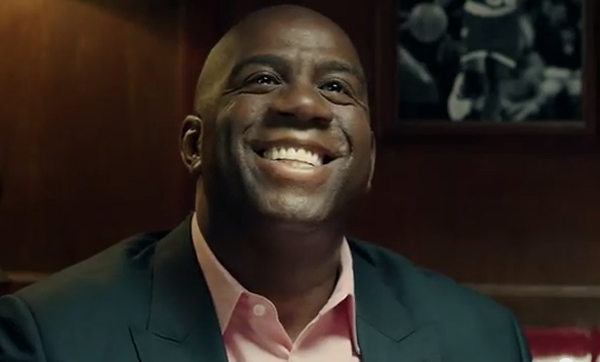Criminal Negligence

I’m just a plainspoken Colorado criminal defense lawyer, but the way I see it…
The Ebola crisis this November brings to mind another November, and another disease to which the initial response was apathy, when Magic Johnson went on network television to announce that HIV/AIDS infected, and affected, more than just anonymous gay men. It infected beloved sports superstars with magnetic smiles, affected all who knew them, or felt as if they knew them through their celebrity.
HIV/AIDS took the rich and famous, too. Magic Johnson was special. Magic Johnson’s illness moved a nation.
Twenty-three years on, Magic Johnson is still alive. But for millions of others, it might have been better had he died. It might have been better were the disease not so heavily focused on men we felt were not really men, and among the poor of rural Africa, so far from our homeland, so far from our consciousness. Just like Ebola today, until it infected a handful of Westerners.
My name is not Magic.
My smile is not magnetic.
If I contract the AIDS virus, if I am a poor man in Sierra Leone and contract Ebola, my suffering will not move a nation. Why should it? The deaths of millions before me have not.
When Magic Johnson announced that he had AIDS, more than twice as many Americans had already died from the disease than died in Vietnam. Some of them must have been special. But almost all of them were gay.
So until Magic Johnson announced that he too had AIDS, it was impossible to identify anyone dead or dying of the disease who was held dear by the first Bush Administration. No one before had merited mention by the President of the United States. Just like Ebola today.
Why this was so was said best by Magic himself. If it could happen to Magic Johnson, it could happen to anybody. Here was the greatest basketball player of his time. He was not gay. He had not shared dirty needles. When it happened to Magic, the President of the United States (who was not unused to the metaphors of sport) recognized that it had happened to somebody.
The United States Administration had long acted as though AIDS was a disease that only happened to nobodies. Just like Ebola today.
Only gay people could get it. Gay people were not somebody. Only drug users could get it. Drug users didn’t count. Just like Ebola today, where poor West Africans are nobodies, and don’t count — until they touch an American.
At a terrible price to him, Magic Johnson forced the American government to confront a disease it had perceived happening only to those it did not care about. His generosity was to show openly that people it did care about could get AIDS too. Just like Ebola today.
When film director Tony Richardson, who left a large and honored body of work, died of AIDS one week after Magic Johnson’s announcement, there was no awestruck press conference. Tony Richardson was bisexual and became infected by having sex with a man.
When playwright and lyricist Howard Ashman, whose creative brilliance had barely dawned, lay blind in his bed at eighty pounds, his producer whispering “Hey Howard, Beauty and the Beast is going to be a great success; who’d have thought it?”, Ashman answering “I would have,” as he died of AIDS, there were no public moments of tortured silence. Howard Ashman was openly gay.
When my friend Kiefer, whose truly creative gifts were the loving vibrations he freely gave to all who knew him, died of AIDS the year before, President Bush did not appear on national television to say he had not done enough to help his kinder, gentler nation. Kiefer, also openly gay and with a heart so large he could love a man who did not physically love him back, did not count.
Nearly thirty-six million people on this dear earth are living with HIV/AIDS, four million of them children. That’s about the same number who have already been taken by the disease since the first cases were reported in 1981.
Most of these are in sub-Saharan Africa, a place that does not count. Just like Ebola today.
I don’t know that if a superstar basketball player, or a billionaire, or a President of the United States, had died of HIV/AIDS twenty-three years ago, the numbers would be different today. Yet I can’t help but think we would have tried harder. Maybe we’ll try harder, today, with Ebola. I hope it doesn’t take the deaths of too many more Americans. And, oh yes, Africans.
Until we are all treated as though each of our lives has worth, as though we all count, this dear earth will be a poor burial ground for us, neither kind nor gentle.
Only one of us will be called Magic.
But to those who love us, all our names are Magic.
To our children, all our smiles are magnetic.
6 November 2014 @ 8:06 am
Hi Phil–I enjoy reading your thoughtful comments in your newsletter. But I couldn’t help but notice your omission of Arthur Ashe, a very well-known tennis player, who died of AIDS after becoming infected as the result of a blood transfusion in a hospital. I am reminded of this fact every year while watching the US Open, which is played in Arthur Ashe stadium. The fact that Arthur Ashe, who was not an anonymous gay man and was a somebody, died in this fashion brought national attention to the failure of our health system to properly screen blood donations for HIV. Today, such screening is common place and has undoubtedly saved countless lives.
So, maybe this proves your point. That it makes a difference if death from a poor man’s disease comes to the famous. GARY SANDBLOM